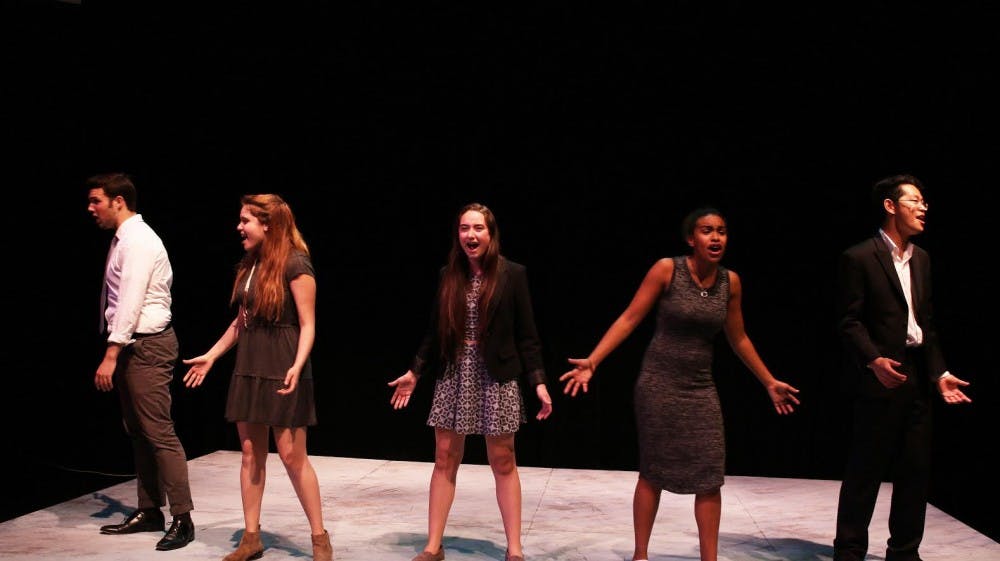What is identity? How does one navigate the world when it is perceived so differently by each individual? Virginia Players explored such questions Oct. 29 in their Lab Series show, “Identity: A Musical Cabaret.” “Identity” was unique because it was an original, one-night show written and constructed by the director and actors.
Director Kathleen Welch, a third-year College student, began the show with a reading of Maya Angelou’s poem “Human Family.” This set up the performance by highlighting the differences which identify and distinguish people as well as the similarities that arise through recognizing these distinctions.
“There is no concrete way to define your own identity,” third-year College student and actor Ana Grethel Solis said.
“Identity” started with no script and only the director’s vision and actors’ experience. Each actor wrote a monologue and chose a musical number relating to it, with additional numbers incorporating multiple actors between the individual scenes.
The intimate space used in both rehearsals and the performance, made everyone feel included and like an integral part of the production. The vulnerability necessary to present an autobiographical monologue was profound, and the actors succeeded in delivering performative pieces that registered with the audience while maintaining self-integrity.
The show was authentic and relatable. The actor-audience relationship was as much a part of the show as the actors themselves, and the performers definitely engaged their spectators. Each actor found a way to expand and project their unique experience onto the entire audience through vocal inflection and dramatized movement.
“If I made [my monologue] too personal and narrow, the audience would struggle to comprehend and sympathize,” Apollo Yong, first-year College student and actor, said. “Conversely, if I made it too generic and broad, I would be sacrificing the point of writing about my own identity.”
Many audience members left the theater in tears, but they were the kind that gather from awe and being so greatly and positively impacted by something. “Identity” was relatively simple in artistic design and script, yet the messages came across so poignantly, enveloping viewers in tangible pride and joy, anxiety and frustration.
A single keyboard provided musical accompaniment, and the stage was bare but for the actors. Being a musical in no way hindered the gravity of the performance. The singing was beautiful and well-rehearsed, and it acutely conveyed the emotions and sentiments expressed in the respective monologues.
“Often people believe that musicals are all about the showmanship and it is all superficial and fake,” Solis said. “I strongly disagree. I believe that music is one of the, if not the most, honest art forms.”
“Identity” was an admittance and interpretation of self, and it affirmed people are not alone in their search for identity.
“Everyone has their vulnerable moments,” Yong said. “Everyone has their own daily trials and tribulations.”
Actors balanced being both presentational and personal incredibly well. None of the actors held back in any way, likely at least partially attributed to the one-night performance.
“Identity” succeeded not only in eliciting overwhelmingly powerful responses, but also in being a truly resonant theatrical production.
“Being able to just be real human beings on stage sharing their own stories, and making the audience live vicariously through them is what theater is really about,” Solis said.







